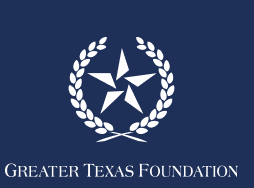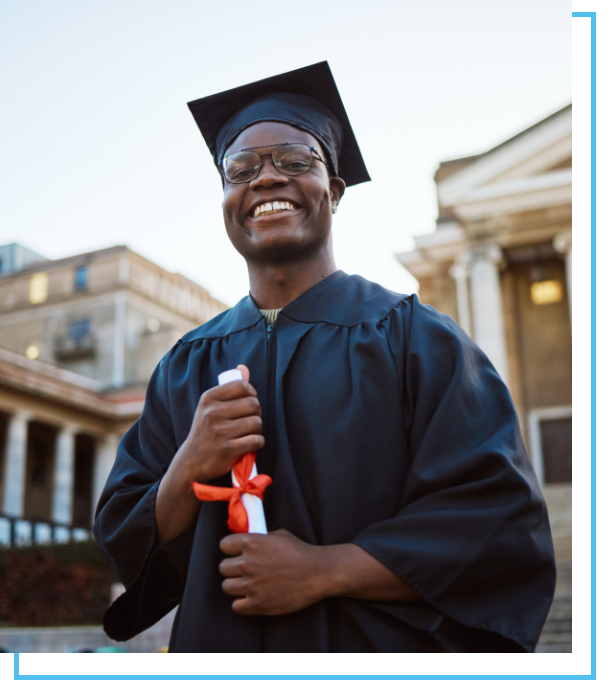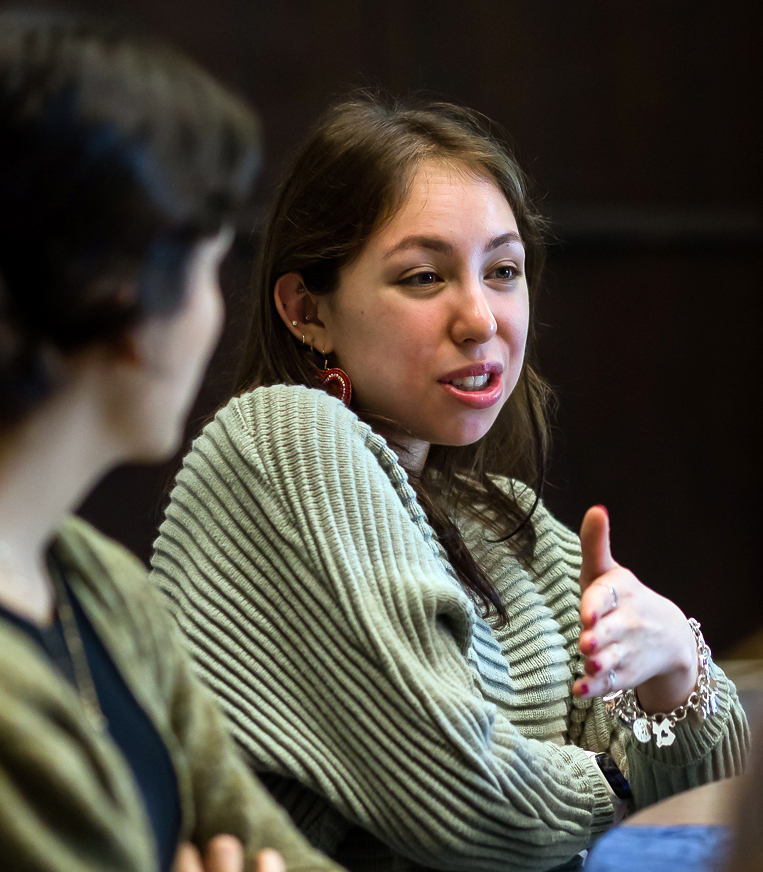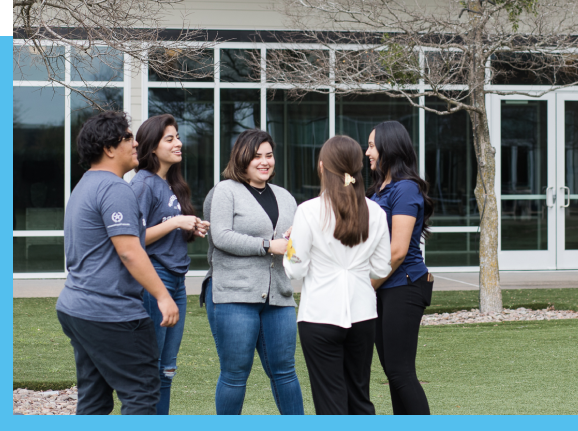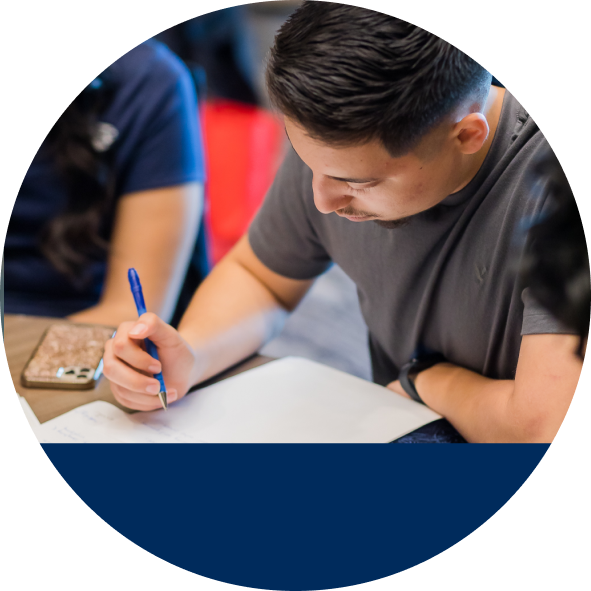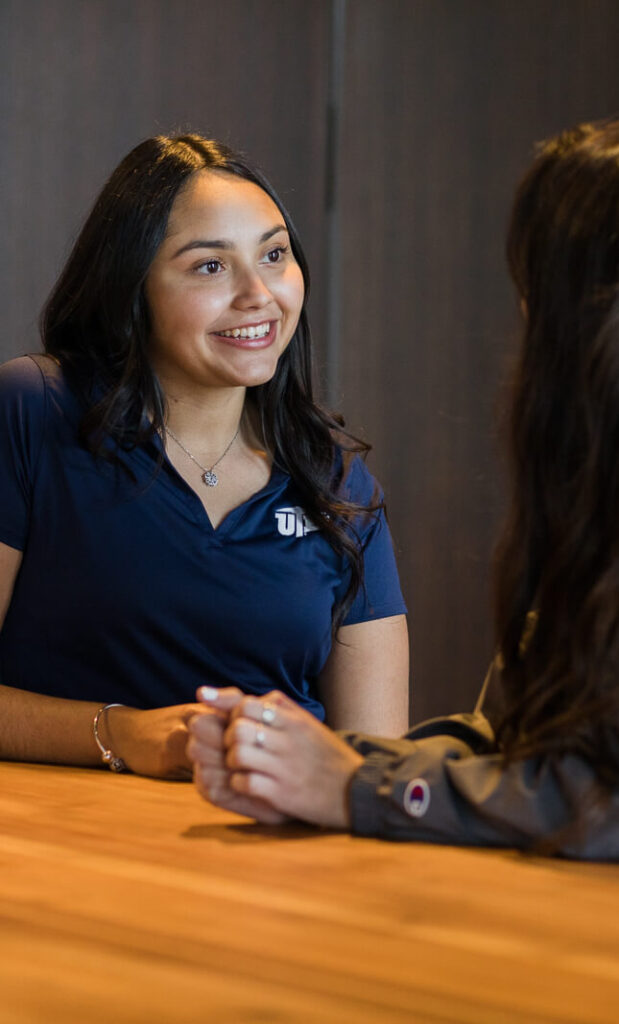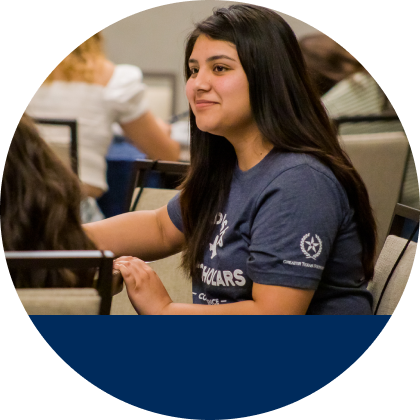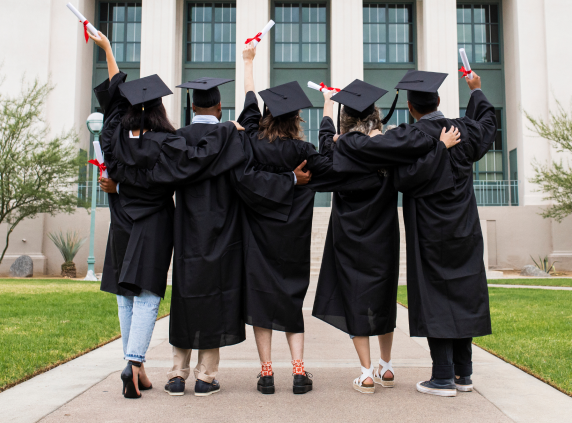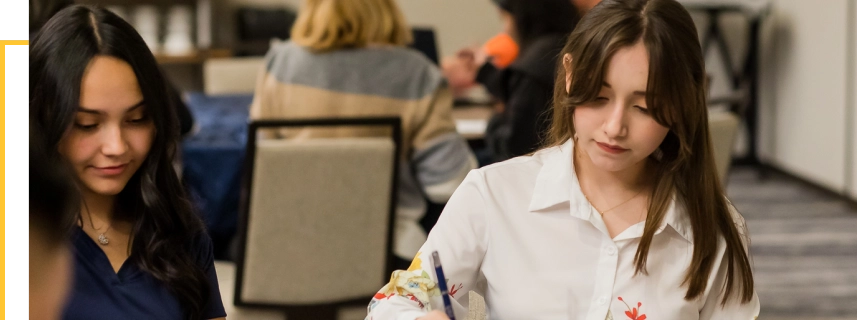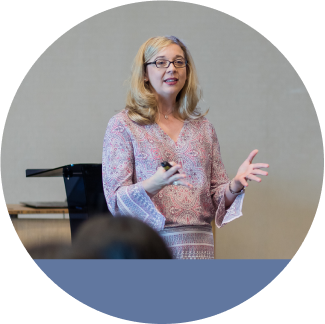We caught up with Derik on a Friday, after his early-morning trip to the gym on campus. Exercise and a healthy lifestyle are priorities for Derik in school and in planning for his future.
What are you studying at Texas A&M and what do you hope to do after graduation?
I am majoring in Biomedical Science because I want to go to graduate school and become a Physician’s Assistant. Initially, I wanted to be a cardiothoracic surgeon but that takes a grueling amount of school and there is a lot of depression and burnout that comes with being a doctor. I want to have a healthy work/life balance and be in a profession that I can stay in for a long time. As a PA, I can help people, earn a good income, and still see my family.
I got a Pharmacy Tech certification in high school, so I will probably work in that field for a while and save money before graduate school.
What challenges did you experience in making the transition from high school to college? And how did the GTF Scholars program help you meet those challenges?
Honestly, the workload is much heavier now than in high school. I have to study much more every week. And I miss my family. Plus, I’m a broke college student.
We have a GTF Scholars class that meets every Wednesday where we hear from mentors, get resumé help, learn about financial literacy–things that can help us in school and in life. Plus, I meet once a month with my mentor, Sophia, who gives me help and guidance and recommendations on which professors to select for classes.
Also, our campus coordinator Bonnie Davila has meals for us all the time. She provides “meal prep” packages for us on Mondays and Crock Pot meals on Thursdays. So that means fewer meals of ramen noodles for us college kids! Plus, she creates social events off campus for GTF Scholars.
What has gone well in your first year of college?
Success for me means giving back. I volunteer with a friend at the Habitat for Humanity ReStore and help with walking dogs at the Humane Society. I remember meeting a cute, three-legged dog named “Trike.” I walked with him for only about three weeks before he got adopted.
When did you know you wanted to go to college?
It was always instilled in me by my parents because neither of them was able to go to college. They worked hard and provided for me and I want to make them proud. I want to make a good income so I can help my parents retire.
Plus, mi tías, my aunts, have been very influential. We are close in age and they are really smart. One of them is one of the first in our family to graduate from college and the other aunt is in college now, in a nursing program. I see her pushing herself and I want to push myself and take advantage of the opportunities I have.
What do you like to do when you are not studying?
I like to play volleyball with friends on the court that is near my dorm. And the rec center is really important to me. I go to the gym five-to-six days a week, to try to build my body as well as my mind.

